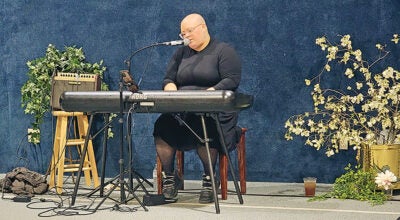VOTE 2010: What politicians won’t say
Published 10:18 am Monday, October 11, 2010
(MCT) — Despite what candidates for governor or the legislature say, balancing the next two-year state budget will be nearly impossible without new tax revenue, even if it’s only temporary.
That was the conclusion reached by a panel of former state tax and budget experts convened recently by The Dispatch. Two Republicans and two Democrats were brought together to provide the type of candid discussion of the looming fiscal crisis that voters are not hearing from the major-party candidates.
Ohio is facing a potential $8 billion budget shortfall, largely because of the economy and the use of one-time money in the current budget.
Any cuts should start with Medicaid and state money going to local governments, the quartet said. But the bipartisan experts agreed that trying to balance the next budget through cuts alone could be devastating.
“The reason people stay in this state, the reason people move to this state — I would include businesses and individuals there — is because we have a quality of life that is worthwhile,” said William Wilkins, a former budget director for Republican Gov. James A. Rhodes and tax commissioner for GOP Gov. Bob Taft.
“If you meat-ax all the services, if you don’t have quality education, if you don’t have a reasonable number of parks and whatever, it’s not a place that people want to come and it’s not a place where people want to stay.”
Wilkins was joined at The Dispatch by William J. Shkurti, budget director under Democratic Gov. Richard F. Celeste; Joanne Limbach, tax commissioner under Celeste; and Thomas M. Zaino, tax commissioner under Taft.
The experts agreed that if the state raises taxes, increasing the state sales tax, now 5.5 percent, is the best option. They also proposed re-examining the various tax credits, exemptions and other tax loopholes now on the books.
To reduce state spending, the experts pointed primarily to reining in Medicaid, the $15 billion federal-state health insurance program for the poor, and taking a hard look at the $1 billion a year the state gives to local governments and libraries.
“The success of the next governor in being able to balance this budget and control the spending side will first and foremost depend on how he manages Medicaid,” Shkurti said.
But Shkurti noted that cutting $3 out of Medicaid saves only $1 in state tax revenue.
Zaino stressed that the next governor must get aggressive with incentivizing or forcing local government consolidation. He and Wilkins agreed that local income taxes are “an administrative nightmare” that hurt Ohio’s competitiveness with other states.
“Do the people of the state of Ohio understand what it costs to have that nice level of (local) government?” Zaino said, noting a lack of local data.
Shkurti added: “Ohio probably has too many layers of local government for what Ohio’s appetite is to pay taxes, and it’s going to come to a head.”
But the experts agreed none of that will be easy — the decisions are hard and must filter through a highly polarized Statehouse political environment where term limits have created a largely inexperienced House.
“Thirty years ago, you could have conversation,” Limbach said.
“Thirty years ago, you had not just leadership, but you had people who understood the finances and who understood the severity of a crisis in a way — I’m not saying these folks don’t, but it’s just different.”
Shkurti said regardless of whether Democratic Gov. Ted Strickland or Republican John Kasich wins, he will have to reach across the aisle for votes.
As Wilkins put it: “The next two-year budget is going to require more skill and finesse than any other two-year budget in the last 50 years.”
The experts noted that 85percent of state revenue is spent in local communities, such as schools, managed health care, libraries or local governments. Cut state money to schools and local property taxes likely go up. Cut cities and local income taxes could rise. Cut universities and tuition skyrockets. Cut Medicaid payments to hospitals too deeply and health costs rise for everyone else.
“It can’t be knee-jerk or you’ll end up paying a price later,” Shkurti said.
Wilkins said he thinks the next two-year budget, at minimum, needs “additional transition revenue,” but said it could be temporary to give the state more time to achieve more long-term solutions.
Zaino agreed, but stressed that the governor must not use additional revenue to put off tough decisions.
“Our tax system is very good right now in terms of the business taxes,” Zaino said. “But if we’re going to raises taxes, raise taxes in such a way that don’t make us anti-competitive with other states.”
Limbach said she thinks a tax issue will eventually be put to the voters, like Michigan did a decade ago.
“They put an issue on the ballot and it wasn’t, ‘Do you want a tax or do you not want a tax?’” she said. “It was, ‘Which poison do you want?’”





